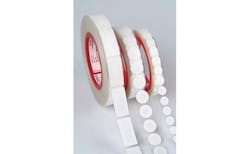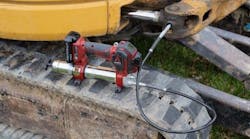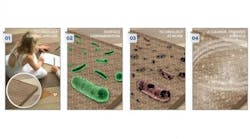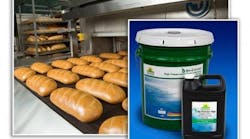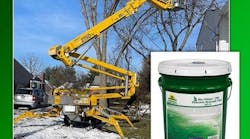Seals Protect Headlights
Schreiner ProTech, a Germany-based global leader in developing and manufacturing innovative functional labels with value-added benefits for engineering-based industries, has introduced a line of pressure compensation seals (PCS) for the protection of automotive lighting systems.
The diversity of emerging lighting technologies, such as adaptive lighting systems, laser light, and Matrix LED, has resulted in growing demand for reliable, often customized venting elements for vehicles. Any effective solution must be designed with the understanding that dependable, durable lighting at night or in inclimate weather is a prerequisite for safety.
Pressure compensation seals (PCS) from Schreiner ProTech protect automotive lighting systems against water, dirt and other foreign objects. They also provide reliable pressure compensation, reduce condensation and support the durability, quality and luminous intensity of headlights – thereby helping to ensure on-road safety.
Compared with threaded or injection-molded versions, as venting solutions, self-adhesive membranes are extremely lightweight and space-saving. They provide effective protection against fine dust, dirt or external water ingress caused by wet weather conditions, water splash or car washes, as well as oleophobic protection against service fluids and cleaning agents. Due to the membrane’s vapor impermeability, condensation in the housing is minimal.
Schreiner ProTech draws on an extensive membrane portfolio and offers the smallest self-adhesive membrane solutions on the market, placing the company in prime position to support the booming trends of “miniaturization” and “lightweight design.” With longstanding experience in adhesives processing and membrane technology – and tight quality processes and testing protocols per IATF 16949 – Schreiner ProTech has set new standards in the area of self-adhesive membrane elements.
As an expert in total solutions, Schreiner ProTech offers customized dispensing and application devices tailored to a customer’s specific assembly process. In the project stage, pilot production assembly is available for producing and testing prototypes in conditions closely resembling volume production. Additional inspection and testing systems ensure impeccable product performance. Customers have a wide range of choices: from functional tests like airflow measurements and adhesive testing to system solutions such as centering and positioning units.
